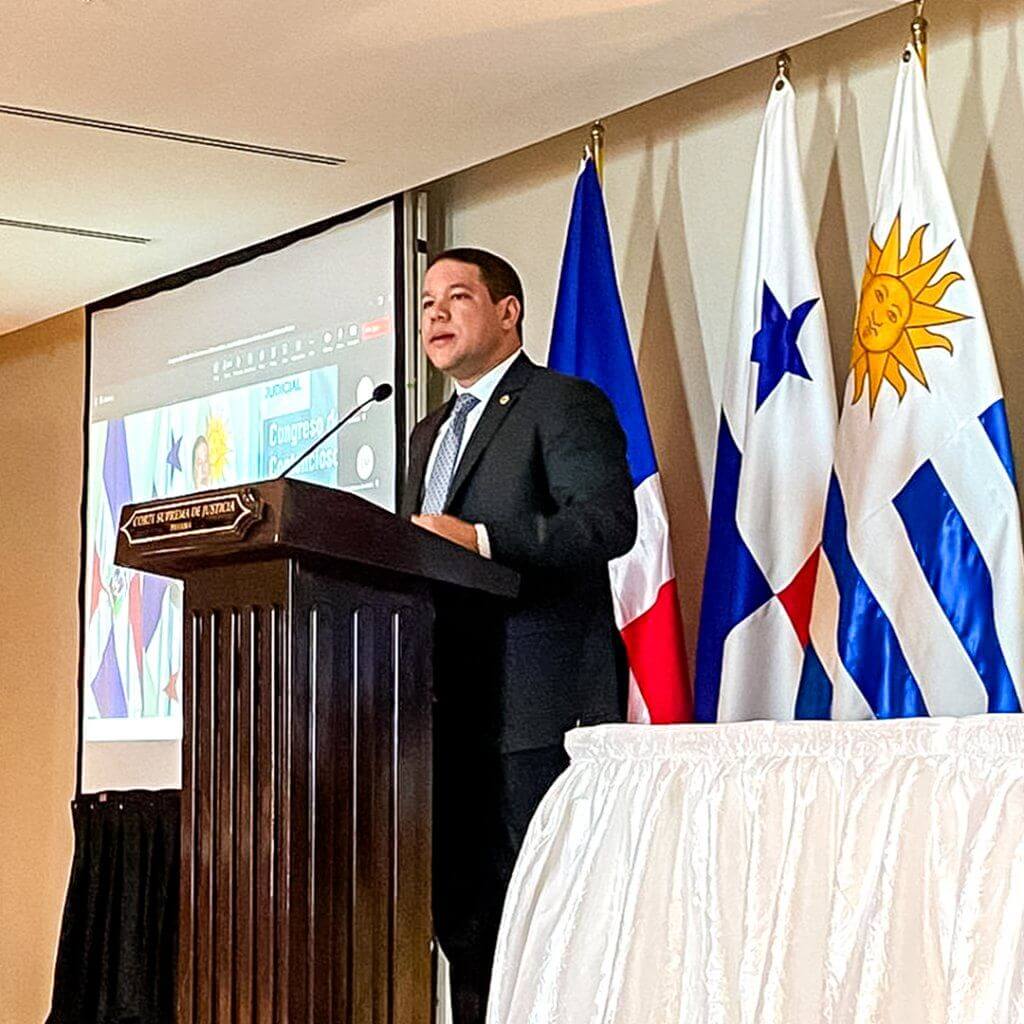PANAMA CITY, Panama - The Secretary General of the Supreme Court of Justice stressed in Panama the importance of administrative sanctioning law in the construction of a more just society in pursuit of the Social and Democratic Rule of Law, during his participation in the "Congress on Contentious Administrative Law: a look at its beginnings, its present and its future".
César García Lucas argued that administrative sanctioning law guarantees the protection of the rights and freedoms of citizens, promoting equality and justice in society, during his speech entitled "The sanctioning power of the public administration in the social, democratic and legal state".
He indicated that, through the imposition of administrative sanctions, compliance with regulations is encouraged and the commission of unlawful conduct is prevented, thus strengthening order and security in the State.
"Administrative sanctioning law provides citizens with the possibility of challenging the decisions and actions of the public administration, ensuring transparency and accountability in the exercise of power," García Lucas stressed.
During the activity organized by the Judicial School - Higher Institute of the Judiciary of Panama, with the collaboration of the Panamanian Academy of Administrative Law, he pointed out that, thanks to this, effective mechanisms are established to correct and sanction conducts contrary to the general interest, thus preserving the welfare and social harmony.
"Administrative sanctioning law contributes to the construction of the rule of law by establishing a clear and predictable legal framework for the imposition of sanctions, thus avoiding arbitrariness and guaranteeing legal certainty," assured the SCJ secretary general.
He indicated that through administrative sanctioning law, responsibility and good management by public officials is promoted, ensuring that they act for the benefit of citizens and in compliance with the law.
At the end, García Lucas received from the hands of the alternate judge of the Third Chamber of Administrative and Labor Litigation, José Delgado, a pin commemorating the 80th anniversary of the administrative litigation jurisdiction and six coins alluding to the commemoration of the centennial of the Panama Canal.
Also representing the Dominican Judicial Branch at the event was Judge Franklin Concepción Acosta, presiding judge of the Fifth Chamber of the Superior Administrative Court, who gave a lecture on "The jurisdictional control of administrative activity in a Social and Democratic State of Law", who also received the pin award and a commemorative coin for the Bicentennial of the Republic of Panama.
The congress, which took place within the framework of the project "Strengthening capacities to improve access to justice", was attended by the President of the Supreme Court of Justice of Panama, María Eugenia López Arias; its Vice President, Justice Olmedo Arrocha Osorio; Carlos Alberto Vásquez Reyes, President of the Third Chamber for Administrative and Labor Disputes; and Judges Miriam Yadira Cheng Rosas, Ariadne García Angulo and María Cristina Chen Stanziola.

















